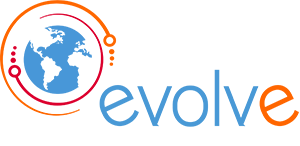Summary
– Main objectives of the Virtual Exchange
Building on the connection between Jyväskylä (FL) and Poznan (PL) advertising/promoting the unknown aspects of the two sister cities in Poland and Finland to attract young travellers;
To enhance online intercultural collaboration in the form of group work and to raise students’ awareness of promotional discourse in tourism;
– Targeted learning outcomes
Skills: critical digital literacy, intercultural skills, online team working skills, analytical skills. By the end of the project, the students will be able to
formulate critical views of municipality website discourse,
reflect on the experience of intercultural online collaboration,
and use a new digital tool (e.g. a video editing app) for the creation of promotional materials.
– Global task description
Week 0 – PREPARATION TIME – right before the project begins our students in Finland and Poland independently carry out a short survey (3-5 questions) among other students in Jyväskylä and Poznan to verify how much they know about the two sister towns located in Finland and Poland and to see what would make them want to visit the sister town;
Week I – introduction, icebreaking, and a short discussion on the idea of the role of sister towns, presenting the results of the survey – synchronous, facilitated meeting for the whole group (facilitated = teachers are also present), ss grouping;
Week: II comparison and evaluation of the official English Internet websites promoting the two cities and their partnership (graphic design, language choice, information provided, evoked image etc.) – work to be done in small groups (via Skype&Google docs) – short reports shared on Padlet or a common google doc;
Week III – collecting information, photos, videos, etc. of the lesser known attractions in Jyväskylä/Poznan that will be used to produce the final promotional video – work to be done in small groups (via Skype&Google docs) – short reports shared on Padlet or a common google doc;
Week IV – task completion: producing the promotional video highlighting the unknown face of Jyväskylä/Poznan to attract young Polish/Finnish tourists – small groups, independent work, teachers available for help, short reports shared on Padlet or via google docs; EASTER BREAK (15-22.04.2019)
Week V – final product presentation (URL addresses placed on Padlet) and project evaluation, including a closing synchronous, facilitated meeting for the whole group (facilitated = teachers are also present) – a chance for the students to express their feelings, describe the difficulties they encountered and present the ways that let them overcome the challenges.
Partners
| Partner / department | Course | Language of instruction | Number of students |
| University of Jyväskylä, Finland Department of Language and Communication Studies |
Separate project, run under the KLSA123 Working on events and developmental projects | English | 12 |
| Adam Mickiewicz University, Poznan Poland School of Languages |
English for Tourism | English | 13 |
Start and end date
20/03/2019 – 26/04/2019
Duration
5/6 weeks
Discipline
Literature and Linguistics / Language acquisition
Integration and assessment
This project is not part of a course at the University of Jyväskylä. The participants volunteered to take part in it. The group is run under the KLSA123 code just for the sake of administration and to ensure that the students get credits for their work.
This project is part of a language course “English for Tourism” at Adam Mickiewicz University, Poznan, Poland. It is an equivalent of a semester project devoted to tourism the students normally design in monolingual groups. The participants volunteered to work in international groups.
Technology tools used
– Learning environment
Google Classroom
– Collaboration tools
Padlet – for ice-breaking and student introduction,
Google Docs for collaboration,
Google Drive for storing (e.g. photos),
Google Hangouts for group online meetings;
Skype//Messenger and What’sApp, Facebook for more direct, private contact between students (let the students choose),
Youtube, Filmora or VivaVideo (smart phone app) to make the video,
Padlet to gather URL addresses of the videos made by the students
– Reflection tool
~
